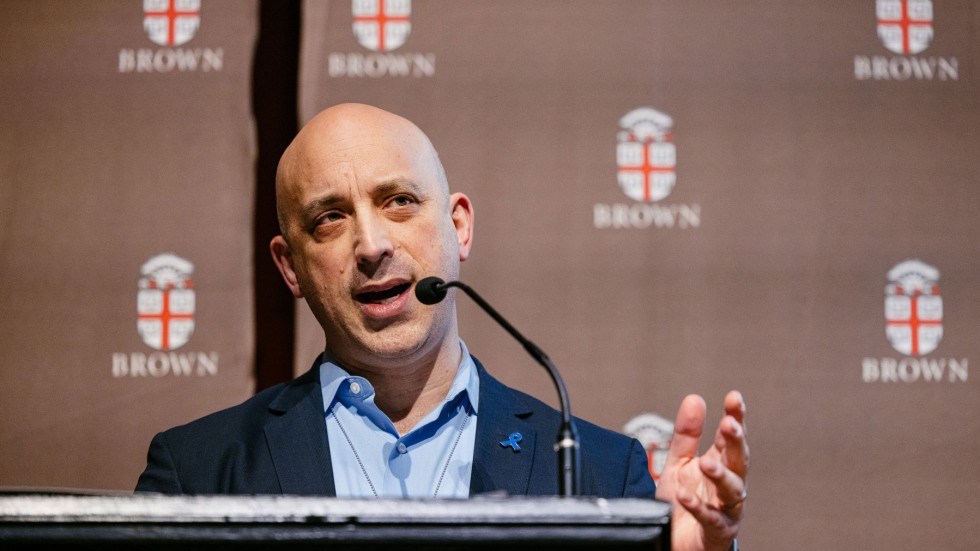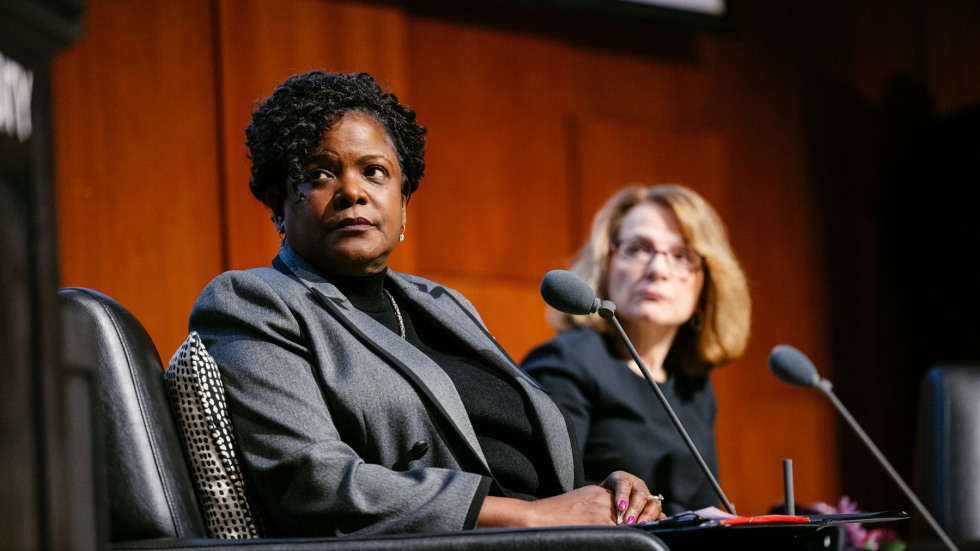PROVIDENCE, R.I. [Brown University] — Founded in 1913 “to stop the defamation of the Jewish people and to secure justice and fair treatment to all,” the Anti-Defamation League has played a key role in combating antisemitism in moments ranging from Ku Klux Klan-inspired violence to the Holocaust. Recently, the organization’s mission has felt more urgent than it has for decades.
That’s according to Jonathan Greenblatt, chief executive officer and national director of the ADL.
“Even before Oct. 7, we were dealing with rising sea levels of hate in ways we hadn't seen before,” he said, referring to the date of the Hamas attacks on Israel. “We were thinking: Do we build seawalls? What do we do in an environment that's literally unraveling around us? And then when the 7th happened, it was like a tsunami.”
Greenblatt shared that point and more with a few hundred Brown community members in a Thursday, Feb. 22, event at the Salomon Center for Teaching. His visit came at the invitation of the Office for Institutional Equity and Diversity, which reached out to him last September to speak about antisemitism in the U.S.
In the aftermath of the Oct. 7 attacks and the tragic loss of civilian lives in Israel and Gaza, the timing of his visit took on even greater significance with reports of antisemitism and Islamophobia on the rise on campuses and across the nation.
Greenblatt’s address also came amid a backdrop of recent protests on campus. Students held sit-ins at University Hall on two occasions, calling on Brown to divest its endowment from companies that “enable and profit from the genocide in Gaza and the broader Israeli occupation” — both ended in arrests when demonstrators chose to remain after operating hours, raising security concerns. More recently, students conducted an eight-day hunger strike to advocate for the same cause. Other community members have raised concerns about the climate on campus, with rising tensions from the ongoing violence in the Middle East, and fear and mistrust resulting from acts of antisemitism, Islamophobia and anti-Arab, anti-Palestinian and anti-Israeli discrimination.
“It's a tense time here on campus,” Greenblatt noted. “It's tense for students, it's tense for faculty, it's tense for administrators, it's tense for everyone. I just heard stories in a reception where students talked about feeling insecure or feeling threatened. I know just last week threatening emails were sent to the Brown-RISD Hillel Weiner Center's executive director and assistant director for no other reason than the fact that they were Jewish and serving Jewish students. This didn't happen in a vacuum. Over the past months, Jewish students here and on campuses across the country have been on the receiving end of ugly and untoward harassment.”

